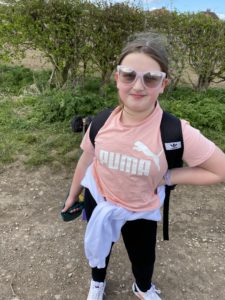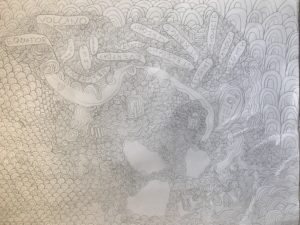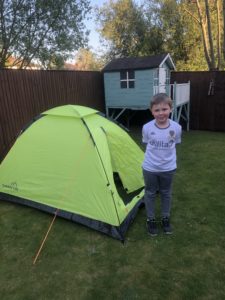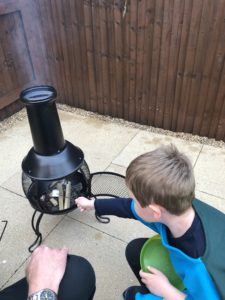It seems that the general mood in lockdown is one of ups and downs – we really hope there haven’t been too many downs for you and your family.
Today’s message is about additions or alternatives to the home learning tasks your teacher sets your child. We know some tasks might end up being a bit tricky for some people, so we’ve three alternatives here.
Living and learning during lockdown
Living and Learning is the name for all the teaching and learning we do around Personal, Social, Health and Economic Education (PSHE). Each week in school, we have a Living and Learning statement. This week’s is I can describe and use ways to calm down. One of the Sphere Federation Health Leaders writes:
Listen to the new story Everybody worries by Jon Burgerman. The story focuses on the emotion of being anxious. Getting stressed, anxious or angry are important and useful emotions but sometimes these feelings can be overwhelming.
Different people use different ways to calm down. Talk at home about the ways people around you calm down. Your child might be aware of different relaxation or mindfulness techniques we’ve talked about at school.
Here are some techniques for your child (and you) to try. Let us know which are favourite techniques!
- Go to a ‘quiet spot’. Turn calming down into a positive by designating a place where we can go to calm down.
- Go outside for a walk or run
- Take some deep breaths. Slowing down our breathing can help our body calm down.
- Count to 10 (or 100). Try this in your head (not out loud).
- Listen to some soothing music.
- Think of something you’re grateful for.
- Look at a funny picture or video.
- Use guided meditations.
- Loosen up – Do some stretches or yoga.
- Sit quietly and have a drink
Writing
Another additional or alternative home learning task is for your child to get stuck into some writing. Many of you have told us that writing has been the trickiest home learning task, so teachers have reduced the number of writing tasks we’re setting. However, quite a few children are missing getting their creative juices flowing. Download this set of writing ideas – they might spark off an idea! Your child’s class teacher will still be happy to read the writing, and your child might like to share the piece with friends and family, too, of course.
Geography
One parent I spoke with last week substituted a geography home learning task with an alternative for her child: to do a jigsaw of a map of Europe with her child – good idea!
You can help your child at home by looking at online maps (like Google Maps) and finding different places (look at the lists below to judge what type of places), and then doing a quiz full of facts about them. Your child could match capitals and countries, for example. Make it harder by missing out the vowels in the words (so they have to consider the spellings a little, too: dnbrgh – Sctlnd).
Geography age-related expectations can be found in our Curriculum Statement in the Curriculum and expectations page of our website. Home-friendly ones to work on are the facts about locations:
By the end of Year 2, geography expectations include:
- I know the four countries and capital cities of the UK.
- I know the seas which surround the UK.
- I know the world’s seven continents.
- I know the world’s five oceans.
By the end of Year 4, the expectations include:
- I know the main cities of the UK (the four capitals and at least four more).
- I know some of the counties in the UK.
- I know some of the main rivers and mountains in the UK (at least three of each).
- I know some European countries and their capital cities (at least four, not including those in the UK).
- I know some of the main rivers and mountains in Europe.
- I know the position of the Equator, Northern Hemisphere, Southern Hemisphere, the Tropics of Cancer and Capricorn, Arctic and Antarctic Circle.
And by the end of Year 6, they include all of the above, plus:
- I know some of the main rivers, mountains and regions (eg the Yorkshire Dales, the Lake District, the Highlands of Scotland) in the UK (at least three of each).
- I know some European countries and their capital cities (at least six, not including those in the UK).
- I know some world-wide countries and some of their major cities.



